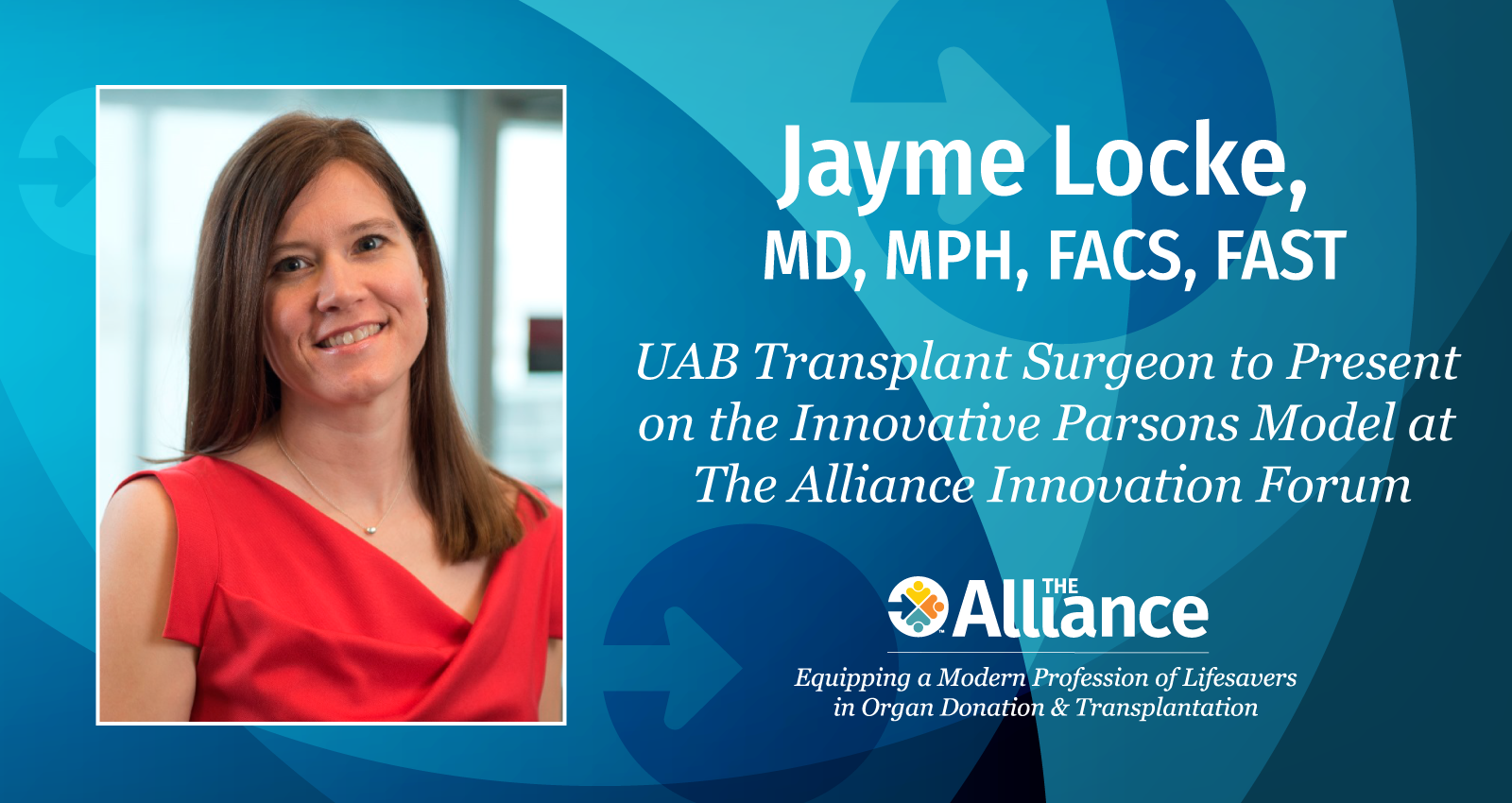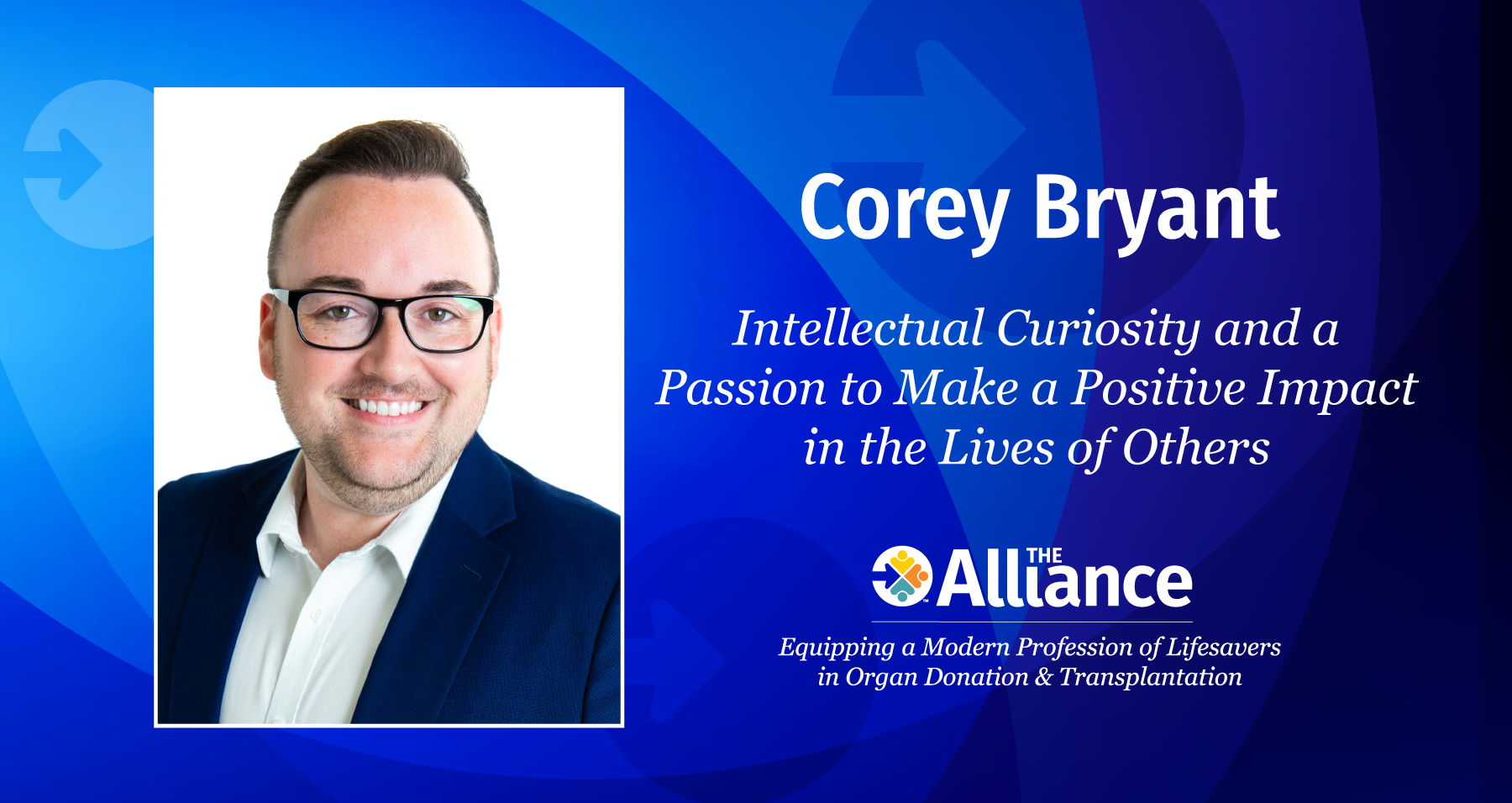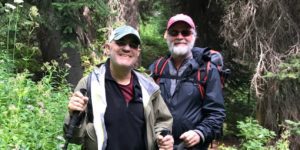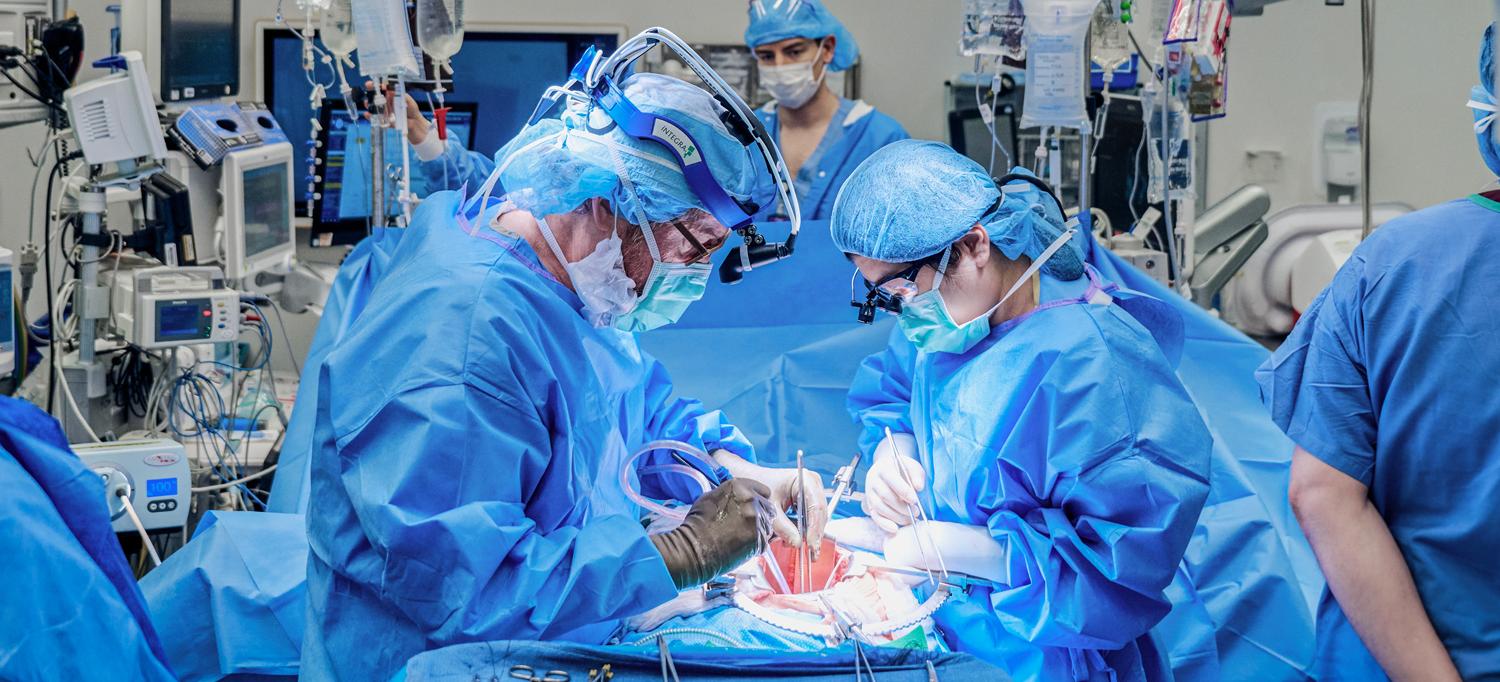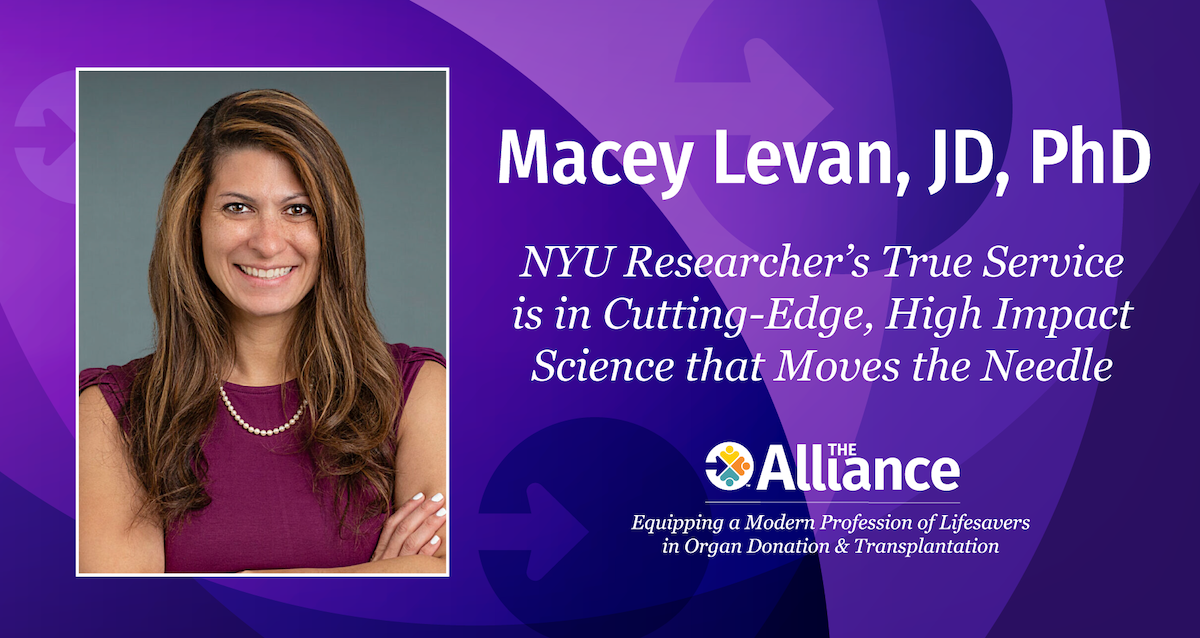Dr. Adam Schiavi is a firm believer that practice improves performance and he brings that approach to his work as co-chair of the planning committee for The Alliance’s 2021 National Donor Management Summit. The event brings together professionals from organ procurement organizations, hospitals and transplant centers to discuss issues and share best practices on challenges facing the organ donation community. Schiavi, assistant professor of Neuroanesthesia/Neurocritical Care at Johns Hopkins Hospital, is an archetype ‘renaissance man’ with roots in art and science combined with a deep-thinking approach to life.
“Our committee is working in a very collaborative way to get a group of experts for the Summit who can come and speak about what’s relevant now,” says Schiavi. “We’re looking at what are we dealing with in the organ donation space now that needs to be talked about or that we need to disseminate information about at the national level. We want to build bridges in this meeting to get as many of the stakeholders in the same place to have these conversations.”
The 2021 summit, “Bold Goals, Bold Actions, Bold Impact” will be held virtually September 1-2, 2021 and Kelly Ranum, CEO of Louisiana Organ Procurement Organization, also serves as co-chair of the planning group. Topics that will be addressed at the Summit include the interface between death and organ donation, changes to the legal definition of death, and upcoming changes in the procurement and distribution of organs.
Schiavi was born in New Jersey and grew up in South Florida. His father is a professional musician which influenced him from an early age. He played and studied music in grade school and received a music scholarship in music performance studying woodwind instruments. He was the first in his family to attend college.
While at Florida State University, his path swerved from music to science and medicine after a talk with his father. “My Dad said, ‘You know, it’s really hard to be a professional musician. You can always be a doctor and still be a musician but not the other way around.’ I had enjoyed science and music in high school so I switched my major to science.“ However, he continued to play professionally for many years and still plays for enjoyment, including the ney, an end-blown flute that figures prominently in Middle Eastern music.
After graduation, Schiavi spent eight years as a medical researcher and earned a doctorate in biochemistry and molecular biology from the University of Miami. The final leg in his journey to medical school came when his graduate advisor told him ‘You can always be a doctor and do research but not the other way around.’ He graduated from the University of Miami School of Medicine in 2004 where he decided to pursue anesthesiology. He fell in love with critical care during a rotation in medical intensive care and then did a two-year fellowship at Johns Hopkins in neurocritical care.
His interest in neurocritical care led him led to an interest in issues involving organ donation. “In neurocritical care, I felt like you were dealing with the essence of personhood itself because you’re dealing with broken brains. It didn’t matter that the person’s body is perfectly fine, if their brain was damaged to the point of never regaining consciousness. This led me to think about critical illness at a very different level. It’s a very philosophical space and led to my thinking about organ donation and getting involved with it.”
“I was also on the Ethics Committee at Johns Hopkins and we dealt with a lot of difficult organ donation cases that were difficult end-of-life situations,” he added. “I became interested in the interface between how we die and the definitions of death and how that relates to how do we allow people to be organ donors and to be good organ donors.”
Schiavi’s interest in ethics began while taking a biomedical ethics course at Barry University where his professor based part of the curriculum on “Star Trek, the Next Generation” episodes. “It was that experience in theclass and then linking it to something that you can actually think about and debate,” he says. “This very interesting and entertaining way of teaching got me interested in ethics.”
He went on to serve on the Ethics Council while in medical school where he helped rewrite the professional code of conduct and when he arrived at Hopkins for his residency, he volunteered as one of two residents for the same group. “From there I ended up doing work with the Johns Hopkins donor council and then Living Legacy. I’m one of the physician ethicists for The Living Legacy Foundation of Maryland and I teach ethics at Hopkins as it applies to medicine and critical care and anesthesia.”
Outside of his professional commitments, Schiavi is devoted to his two young adult daughters and loves to read—Meditations by Marcus Aurelius is on his nightstand, along with Carl Sagan’s Demon-Haunted World. Other interests include personal fitness, yoga, kayaking, and traditional archery, which he describes as using a stick with a string and a wooden arrow. “It’s instinctual archery. It’s an iterative process of targeting, letting it go, watching the angle and then correcting the course and doing this over and over and over again developing perfection of form and consistency of practice. I do the same thing in anesthesia that I do in archery. It’s the way I think about things.”
He’s also a voracious consumer of the performing arts. “I attend concerts, theater and anything where you have people displaying themselves and performing at a high level,” he says. “I look for unique insight and virtuosity. You can find it in many places you just have to look for it. My Ph.D. adviser told me that I always took an artistic approach to science and that I did the same thing–seek out unique insight and virtuosity, not only in performance art, but in the ability to do science and to think.”
That lifelong interest in performance led Schiavi to direct simulation education for his department at the Johns Hopkins Medicine Simulation Center.” We create a simulated environment such that people can perform and act instinctually in a crisis situation. And then we are able to take that, have them reflect upon it, and then actually fine-tune their instinct so that when they see the situation again, they can act a little quicker or act a little more accurately. It’s a process where you develop mastery through iterative practice to become more focused and precise in dealing with a crisis or an emergency in real time.”
Circling back to The Alliance’s upcoming National Donor Management Summit, Schiavi says “The good thing about The Alliance is that it’s there for the common good of organ donation in general. We can look at how we promote the best of what’s out there and bring the best of people together to have conversations and disseminate information and ideas. People come to The Alliance and then go back to their organizations with new ideas, with new connections, and with new friends.”











